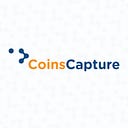5 Predictable NFT Developments in 2023
There is no doubt that the elevated-profile scams that occurred in 2022 have undermined the faith of Web3 users, especially NFT collectors and investors. Sales of NFT artwork skyrocketed to almost $1.5 million in 2021, but the market hit a barrier in the third and fourth quarters of 2022. NFTs remain a valuable investment, especially in the collectibles industry, where they account for 60% of the market share and the virtual artwork sector. These modifications also triggered a wider discussion about privacy as well as the influence that NFTs would play in establishing Web3 authenticity.
Also Read: How Do Cryptocurrency Derivatives Work?
Since we are now in the first quarter of 2023, there are a few trends regarding NFTs that investors who are acquainted with the digital economy or those who are planning to include NFTs in their portfolio should be aware of. In 2023, there are five NFT trends or changes that may be predicted about NFTs that you should be aware of. We can’t say for sure that these are all the tendencies which might develop, but they seem promising. This article takes a lighthearted look at what the marketplace could be interested in the year 2023.
Also Read: Coinbase CEO Confirms SEC Crypto Staking Ban Reports
These are the five most likely developments in NFT in 2023:
1. Matured NFT Space
NFT initiatives don’t seem to be progressing while news of the collapse of the FTX and the arrest of the notorious Sam Bankman-Fried has dominated the headlines for the last several months, leading many to lose faith in Web3. Despite the fact that most people are experiencing the usual growing pains associated with any technological advances, the NFT platforms that are likely to last are the ones who are actively exploring with tools based on their libraries. By 2023, many NFT platforms will focus less on the abstract possibility of generating fast money from an NFT transaction and more on giving real value to its customers in the form of points or a sense of unity. Psychedelics Anonymous, a popular Web3 company that emphasizes NFTs, has now released a coin-gated goods line that requires customers to use an NFT from one of their collections in order to buy clothing.
2. Artificial Intelligence in NFTs
In 2023, keep an eye on the developing space where NFTs (Non-Fungible Tokens) as well as AI (Artificial Intelligence) meet. In the realm of art, NFTs and AI might be used to create one-of-a-kind antiques as well as NFTs. Machine learning advancements have made it possible for artists as well as collectors to produce unique digital works that can be stored on the blockchain as NFTs. This offers up new opportunities for AI-generated art bidding as well as NFT markets by facilitating the production of genuinely unique and rare virtual goods. NFTs and AI may also find applications in the realm of VR. Customers may make and sell truly one-of-a-kind VR experiences with the safety as well as unlinkability of the public ledger by integrating NFTs with VR technology.
3. Digital Collectibles
NFTs are unique blockchain coins that serve as a clear indicator of ownership for works of art across many mediums, digital art in particular. NFTs’ auditability has led to their implementation in experimental incentive systems at a growing number of firms. Starbucks is one of the most prominent businesses that use NFTs nowadays. ‘Journeys,’ the coffee giant’s newest rewards program, integrates NFTs as components of a meaningful exchange with consumers and was recently released as a beta version of Starbucks Odyssey. Taking part in games, digital trips, as well as other collaborative endeavors will earn members prizes. Consumers would be given an NFT souvenir similar to a “Journey Stamp,” with additional perks available to them as they collect more stamps. Starbucks, whose rewards program is already among the best, decided to employ NFTs to expand its advertising and community-building efforts among Web3 consumers.
4. NFT Ticketing
NFTs are an intriguing prospect for the ticketing industry beyond 2023. Utilizing NFTs as a stand-in for actual tickets allows event planners to avail use of the immutability and security of the blockchain to cut down on fraudulent sales as well as decapitating. Tickets purchased via NFT are transferable, facilitating the resale of tickets between fans and the alternative ticketing marketplace. Using NFTs for tickets might provide artists and events with additional income opportunities in addition to the perks for event organizers as well as visitors. It’s possible that NFT tickets with extras like meet-and-greets and backstage access might be priced more than regular tickets.
5. NFT Community Neighborhood Watch
As thieves from OpenSea made off with $1.7 million in NFTs at the beginning of 2022, several Web3 projects rethought their security methods. Twitter and OpenSea may still be useful for reporting harmful NFT actors, but they are also open to phishing attempts and bot attacks. Due to the increasing focus on security in the NFT group, it is essential to work together to ensure everyone’s safety as the landscape evolves. Among the many ways NFT stakeholders may keep an eye out, crowdsourced reporting will play a crucial role. In Web3, securing digital assets and identities will need the use of living databases and technologies that may report an account and make it publicly visible.
The Bottomline
If you are interested in getting the word out about your NFT initiative, you need to choose the correct NFT marketplace to do so. Also, customers gain from the referral network, increased accessibility to original NFTs rather than duplicates, and user-tailored DeFi options such as staking.
Disclaimer: The author’s thoughts and comments are solely for educational reasons and informative purposes only. They do not represent financial, investment, or other advice.
